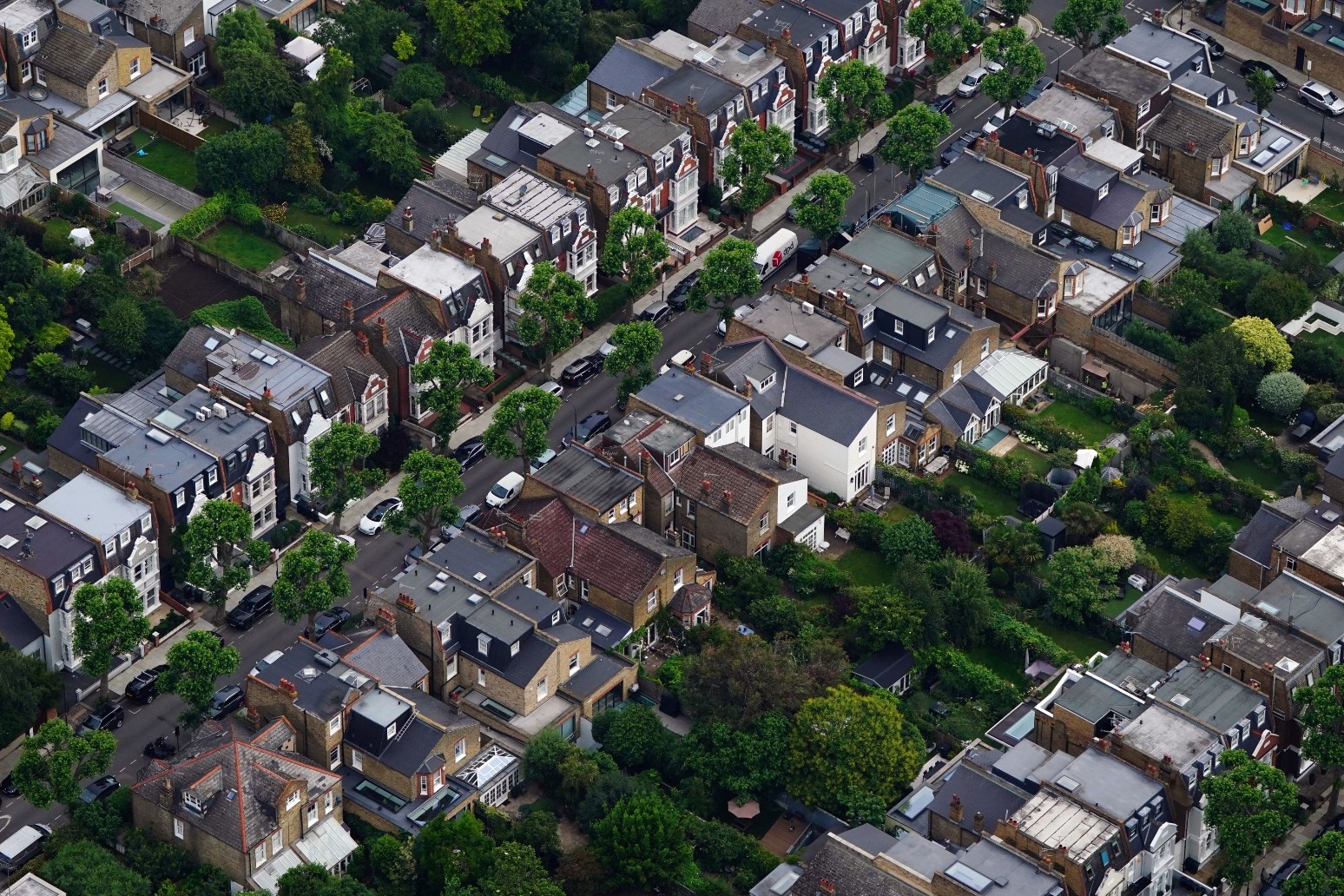
About £1.5 billion could be saved each year in homelessness-related costs if social and affordable housing was prioritised across the UK with increased investment, a group of experts has said.
A report led by researchers from University College London (UCL) called for a “transformative national housing plan” to be put in place, including scrapping the right-to-buy scheme for all future social housing in England.
They estimated that a further £4 billion investment from Government annually over the next five years could be used to build 72,000 extra dwellings each year.
A report in July from the Levelling Up, Housing and Communities Committee warned that the Government was unlikely to deliver its manifesto commitment to build 300,000 homes a year in England by the mid-2020s after a change in approach.
Prime Minister Rishi Sunak decided in December to make the target advisory rather than mandatory as he looked to see off a potential Conservative backbench rebellion.
The UCL report, published on Wednesday, suggested that the extra investment its researchers were calling for could see about 100,000 homes built in total across the UK each year – breaking it down to about 80,000 in England, 11,000 in Scotland, 5,000 in Wales and 4,000 in Northern Ireland.
They suggested a mix of about half social housing for people on the lowest incomes, others priced affordably for people starting out on the property ladder, and the rest to be rented or sold at market prices to help subsidise the plan.
The report, which also had input from the London School of Hygiene and Tropical Medicine and the Royal Free London NHS Foundation Trust, said it had estimated that overall homelessness costs come to about £6.5 billion each year for the UK – due to associated costs including to the NHS, criminal justice system and social services.
The researchers said the Government “is only providing just over £1 billion a year towards social/ affordable housing in England, resulting in only 15,000 grant-funded homes annually”, and added that too few will be social-rent homes that those on the lowest incomes can afford.
Boosting this investment by £4 billion, to a total of £5 billion annually, could therefore see an estimated saving in homelessness-related costs of about £1.5 billion, the researchers said.
The report also calls for an end to right-to-buy in England for all future social housing, arguing that this policy has contributed to “an estimated net loss of 165,000 social-rent dwellings in England over the past decade, even if one allows for the fact that there has been some new provision by, for example, housing associations”.
They suggested the other three nations of the UK are “faring better than England” with regard to provision of social housing, but that they would “clearly benefit from an increase in social/affordable housing, especially in areas with higher indices of social deprivation”.
Right-to-buy schemes ended in Scotland and Wales in recent years and are more restrictive in Northern Ireland.
The report states: “With some of the finest architects, engineers, housing directors, public health specialists, housebuilders, educationalists and creative powers; Britain’s community of makers, thinkers, designers and doers should be mobilised to put social and affordable housing at the top of their societal agendas.”
Professor Rosalind Raine, who co-authored the report, said: “The housing crisis impacts on individuals, families and communities directly and indirectly.
“It is possible to tackle the holy grail of improving everyone’s lives, with benefits accruing the fastest for the most vulnerable. Our report does not rely on polemic but on published data.
“This summarises the evidence on the health and wider social impacts, the economic costs and savings, and highlights exemplars of social and affordable housing which can feasibly be scaled nationally.”
The report came alongside the launch of the Social and Affordable Housing Initiative, a coalition led by UCL, Dolphin Living affordable housing charity and architects John McAslan + Partners, which aims to bring together “experts from multiple sectors, including architects, engineers, public health specialists, charities, as well as the public and private sector”.
The Government has insisted housebuilding remains a priority.
A spokesperson for the Department for Levelling Up, Housing and Communities said: “The Levelling Up White Paper committed to increasing the supply of social rented homes and a large number of the new homes delivered through our £11.5 billion Affordable Homes Programme will be for social rent.
“We also recently laid out an ambitious long-term plan for housing that will build the quality homes this country needs, and we are on track to deliver one million new homes in this parliament.”
Published: by Radio NewsHub










